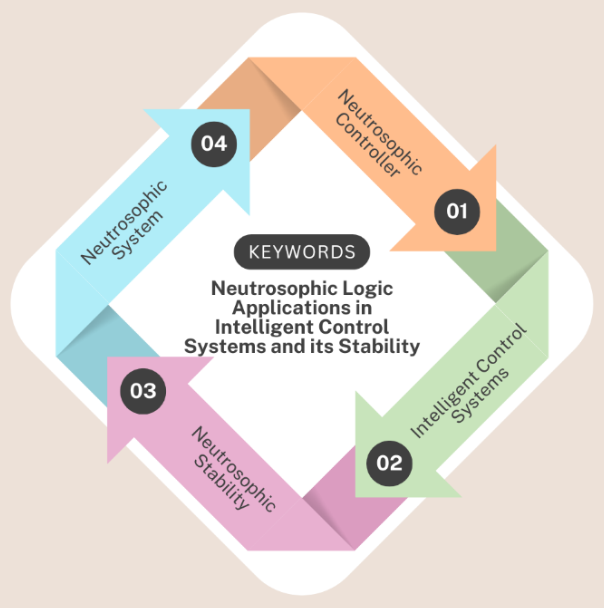Neutrosophic Logic Applications in Intelligent Control Systems and its Stability
Main Article Content
Abstract
Uncertainty is an inherent characteristic of actual control systems since their parameters are not fixed and may change based on external factors. The behaviour and performance of control systems can be strongly impacted by these unknown characteristics. Variability in the environment, ageing of core components, and manufacturing tolerances are some of the factors that contribute to this uncertainty and pose an unknown risk to control systems. As a result, real control systems' intrinsic parameter indeterminacy may have an impact on how well they operate. Real-life scenarios are often ambiguous and complex, posing challenges for decision-makers to articulate their opinions. Neutrosophic sets are employed in such contexts to handle indeterminacy effectively. Neutrosophic theory suggests a variable interval based on truth, indeterminacy, and falsity, allowing for the expression of both determinate and indeterminate information. Nevertheless, neutrosophic sets have not yet been used in the modelling, analysis, and design of uncertain control systems with determinate parameters. To close this gap, a new neutrosophic design technique is established in this study by introducing single-valued neutrosophic systems. The suggested control design method is illustrated with a numerical example employing neutrosophic parameters.
Downloads
Article Details

This work is licensed under a Creative Commons Attribution 4.0 International License.





